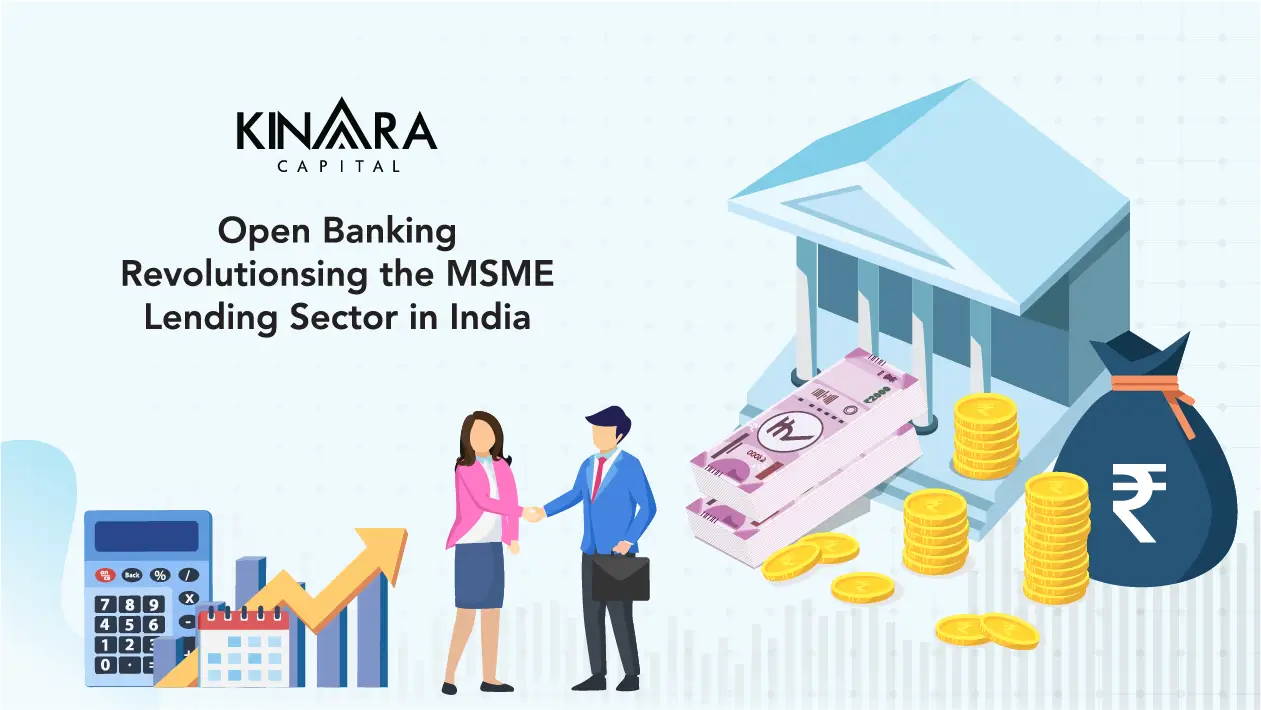
Open banking is a banking practice that gives third-party payment services and other financial service providers open access to consumer banking, transactions, and other financial data from banks and non-banking financial institutions through application programming interfaces (APIs). Open banking promotes interoperability and networking between banking information and service providers, creating a smooth user experience while networking all user’s accounts. Let’s explore how this framework can help revolutionise the way the micro, small, and medium enterprises (MSME) lending sector in India operates.
Under open banking, banks allow regulated financial providers access to use and share customer banking data. This is not done without explicit consent. Once consent is given, these regulated service providers will aggregate the data they need, analyse it and start building an accurate consumer profile. Open banking is rapidly emerging as a significant engine of innovation that has the potential to transform the banking sector.
As the global economy continues to evolve, open banking is becoming more popular as it is tailored according to the new customer expectations and new technology regulations. It enables quicker, more secure transactions anywhere in the world and gives customers more chances to manage their accounts with the help of third parties.
There are some online banking benefits for both customers and bank owners with Open Banking. Let’s explore the advantages that this framework presents:
Open Banking makes it simpler for consumers to access different digital services from one place. It provides a friendlier, simpler and faster experience with quick and easier finance management. They would be able to take advantage of the best available offers with better transparency, and they would be able to monitor their current financial situation in a single app on their smartphone.
Another benefit of open banking is the diversity of credit services to which consumers can apply. Due to open banking, companies that offer loans will now be able to issue credit offers much faster. This allows consumers to acquire the money they need at the exact time they need it.
With the advent of Open Banking, banks regained complete control over various services their clients require, including guidance, loans, transfers, and financing. As a result, everything is carried out more transparently and under a single administration.
Despite the many advantages open banking offers, it does have some risks to consider as well. These include:
Customers have shown apathy or lack of trust in Open Banking. It is due in part to their apprehension about providing their data, as well as their lack of understanding of how it works.
When everything is handled digitally, the face-to-face encounters between the customer and the bank are getting fewer and fewer. This can lead to a breakdown in the psychological interaction between the customer and the supplier, as well as the loss of brand loyalty.
While customer data can be effectively used to streamline and improve service delivery by financial service providers as well as third party providers, it can also be misused. In the absence of the right regulatory mandates, data can be used to create a predatory or exclusionary environment for customers in some cases.
Open banking is poised to change the way banking and financial services operate by levelling the playing field and easing digital accessibility. There are some clear advantages that open banking has when pitted against the traditional model of service delivery of banking entities. Here are some ways open banking can fuel innovation and ease in the MSME banking sector:
Open banking regulations are leading banks to technology that allows them to engage with the proper fintech partners to help them flourish in today’s digitally driven environment. With new technology, banks will be able to better access and mine the data they already own to create individualised services their MSME customers need.
Kinara Capital, one of India’s leading last-mile lending organisations, has already been providing a lot of the advantages that open banking promises to its customers. The company is committed to increasing financial inclusion for MSME entrepreneurs through collateral-free business loans, and conducts credit-decisioning through data-driven AI/ML-led processes. Kinara leverages fintech APIs to provide digital services in order to meet rising client demands. The recently launched myKinara app from Kinara Capital enables small business owners to access services more quickly and easily.